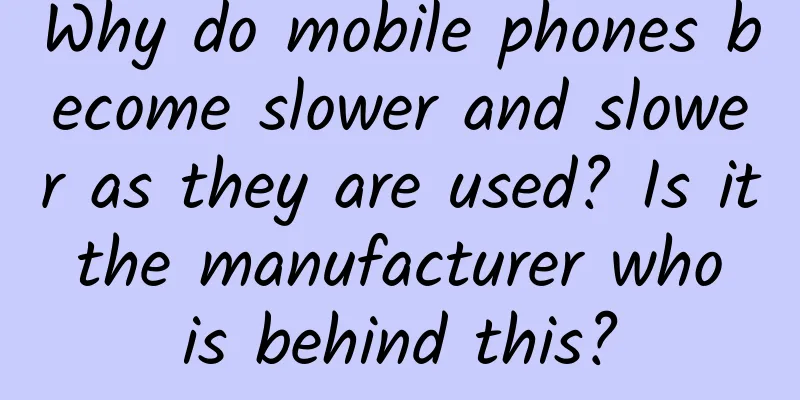Why do mobile phones become slower and slower as they are used? Is it the manufacturer who is behind this?

|
If someone told you 5 years ago that a mobile phone could do what a computer does, and that you could play large-scale games with graphics and gameplay that are no less than PC games, you would definitely think that person was joking. But in fact, as mobile phone processors become more and more powerful, these things that were previously unattainable on mobile phones have been gradually realized step by step. In November last year, Apple officially released the M1 chip.
In terms of theoretical performance, it actually beat Intel's desktop processors, which is also considered to be a sign of the rise of mobile chips. From the technical indicators, Apple's A15 single-core performance Geekbench5 can run more than 1700 points, which is higher than the 10th generation i7 and is at the level of the 11th generation i7. Even in the Android camp, not to mention the upcoming Snapdragon 8 Gen1, this year's Snapdragon 888 has a single-core Geekbench5 performance of more than 1100 points, which is also at the level of the 8th generation i7. But I don't know why the mobile phone hardware is so powerful but still has the problem of getting slower and slower with use? Unlike PC, it will not get slower after a long time of use. Some people suspect that the manufacturers are behind this, hoping that the phones will become slower after a while so that users can buy new phones. In fact, there are two main reasons why phones become slower over time. The first is caused by system updates. With the optimization of basic functions and underlying codes of Android and iOS, The update direction of the new system is no longer about fluency, but adding more new features and external expansion capabilities. These things need to consume more hardware resources and are often considered for the latest and more powerful hardware configurations. Therefore, old hardware phones will not be able to keep up with the pace after upgrading to the new system version, and naturally become more and more stuck. The second reason is the exploitation of hardware by software applications. I don’t know if you have used some simplified APPs modified by experts to remove advertisements and push notifications. The smoothness of those APPs after installation is completely different from the original version. The old version of APP also has the same effect. Just like the system version, once the basic functions of an APP are almost complete, it will start to constantly update useless additional functions or add advertising codes, which will consume more hardware resources during operation. The constant updating of APP versions will naturally make the phone slower and slower. After understanding these two points, we know that if we want to slow down the lag of the phone, we should not upgrade the system or update the APP blindly. |
>>: The iOS15.1 system channel is closed and cannot be downgraded!
Recommend
It is clear that these people still need to be vaccinated against COVID-19! The latest document from the Joint Prevention and Control Mechanism of the State Council
On the 10th, the State Council's Joint Preven...
An Intel instruction set crashes AMD Ryzen processors again
The CPU has a basic instruction set, which refers ...
Detailed explanation of "old customers bring new customers to share": a breakthrough in user growth
Before talking about the method of “old employees...
Guangdiantong account establishment, targeted classification and path landing page production
1. Guangdiantong account establishment The overal...
Training camp operation strategy from 0 to 1 million!
In 2020, I was not satisfied with the status quo ...
Everyone is talking about user growth, have you avoided these 3 pitfalls?
In my book "Exploding User Growth ", I ...
Liu Zhanwen | Standing tall and shouldering the mission of intelligent transportation Fu Fanghua
As a female young scientist born in the 1980s who...
Replacing global fonts in a rough way in Android
[[204795]] sequence Using custom fonts on Android...
Breaking gravity, humans will conquer space walking, are you ready?
How long does it take to orbit the moon? It may b...
The kitchen appliance industry has entered a new channel of close competition
After Fotile launched its annual new kitchen appl...
How to write a company celebration event planning proposal? Six aspects need to be grasped
2019 is coming to an end and 2020 is about to arr...
When an undersea volcano erupts, why can't seawater extinguish it?
Submarine volcanoes, as the name suggests, are vo...
Honda: Honda's sales in November 2023 were 106,654 units, a year-on-year increase of 36.5%
According to media reports, Honda announced its s...








![[A Fun Anatomist] Can’t wink? You can always blink!](/upload/images/67f22fedacafb.webp)
